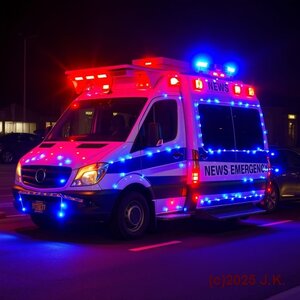The bill is being altered, I know this for sure. It could end up being even more of a threat depending on the revisions. There are meetings this week between chasers and the representatives. The Oklahoma Highway Patrol continues to oppose this bill. There is some hope they could persuade the Governor to veto the bill at some point.
Killing it, not dialog/conversation, not "everybody gets a little something, but not everything that they want" compromise, is the answer.
The Hegelian Dialectic Synthesis (compromise) is just nudging things along, getting their feet in the door for the next time.
Quote from
@Dave C above, I agree with these points
"EDIT: I would like to add a summary of what I personally think are the key points that need to be made to lawmakers throughout this discussion. As someone else pointed out, we don't want to lose access to chase as 'amateur' or whatever label is applied to generic chasers, but we should not sound like that is the only reason to oppose. Thing is, this bill does NOTHING to make the recreational part of chasing safer. Trying to ban regular people, locals or not from navigating near storms will not be feasible and a waste of emergency resources.
This is about money and control, NOT safety. The fact that only big money media and in state research gets these rights is the obvious proof. There is nothing in the bill that enhances safety or public well being. Their goal is revenue/influence/control and banning chasers so they are the money makers and relevant again, because legacy media is dying.
Limiting media access on public roads to big money legacy organizations is unconstitutional at the federal level, extremely obviously. You cannot choose media access by how much money it has. In the past, big media spent their big bucks to be better, faster, and have better cameras to get the good content. Now that the field is leveled and they refuse to innovate, they want to cheat and legislate.
This law would interfere with locals and normal traffic. Even if code 3 is dropped, which I expect as this is a deceptive bill and this is the opening volley in a negotiation, still money media getting special treatment vs. the public will be impossible to enforce and cause confusion in emergency situations.
Most bad behavior, fatalities, accidents already comes from those doing big money media, science, tours.
If a bill wants to do something for the public good (why else are we making a state law here), there needs to be a lot more tangible benefits than some weak argument that big money media and only authorized researchers are somehow helping the public. Many of the best ground truths come faster and more accurately in spite of legacy media and researchers, not because of them.
Giving any special responder rights to media in emergency situations is unheard of, VERY likely not constitutional including in the field or making declarations of what defines an emergency. Only law enforcement and government should have this power.
There are much more sane ways to improve behavior and safety near storms (if that has anything to do with this bill at all) this is just not it."
For some reason, my copy pasta left out the bullet point numbers.

